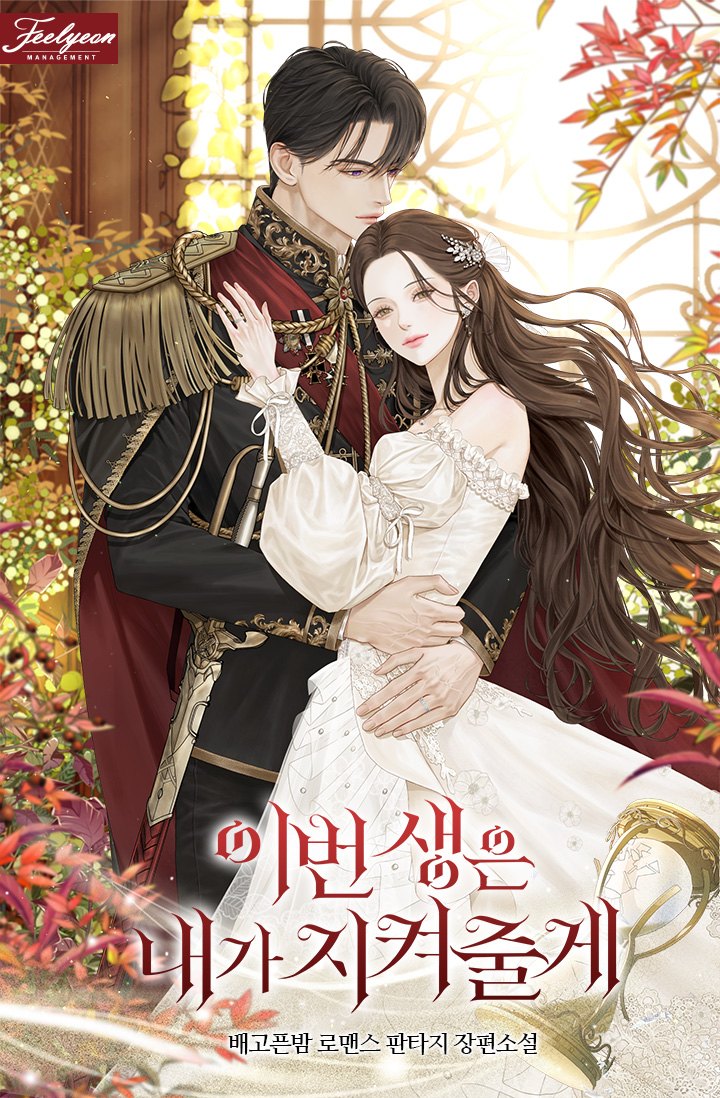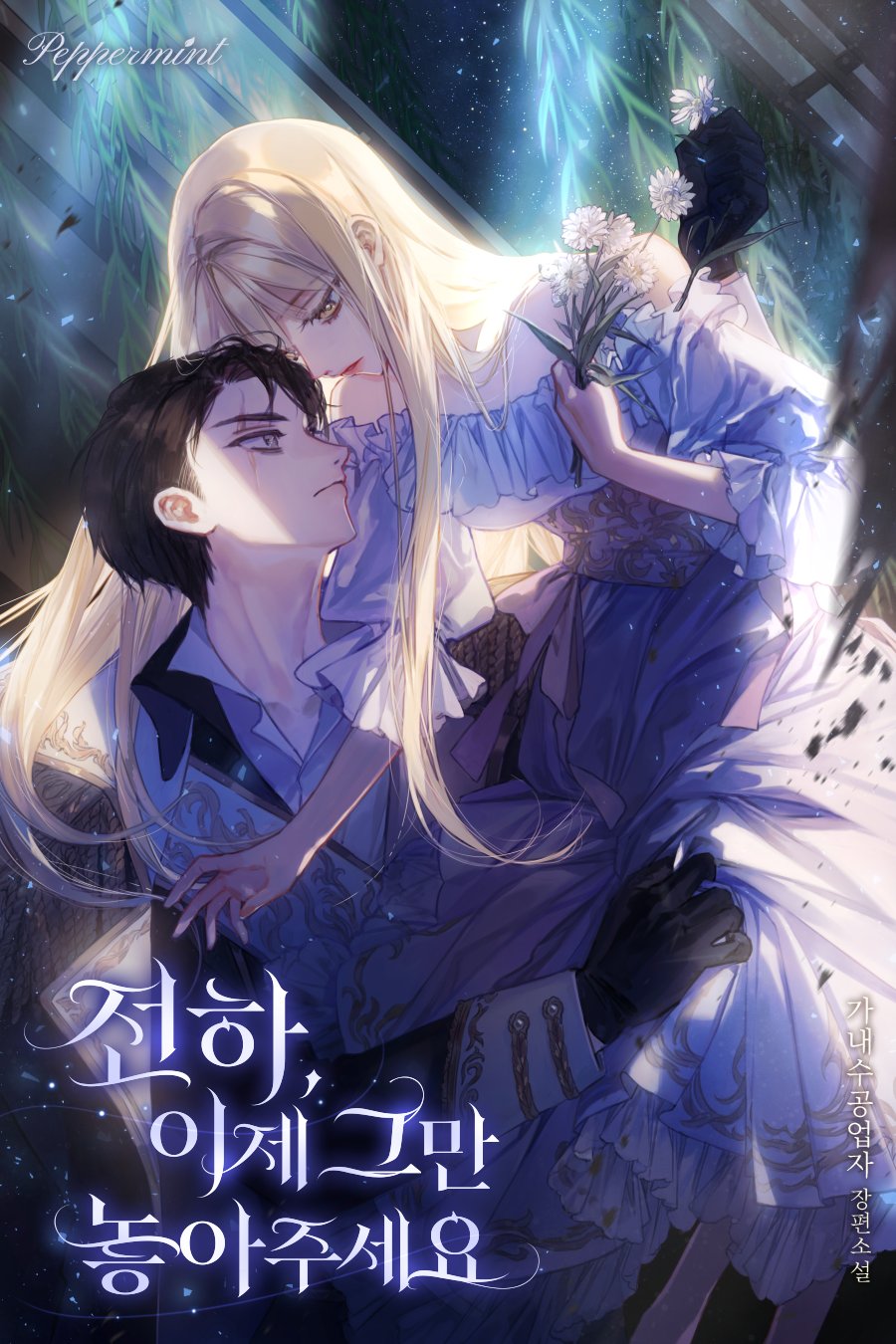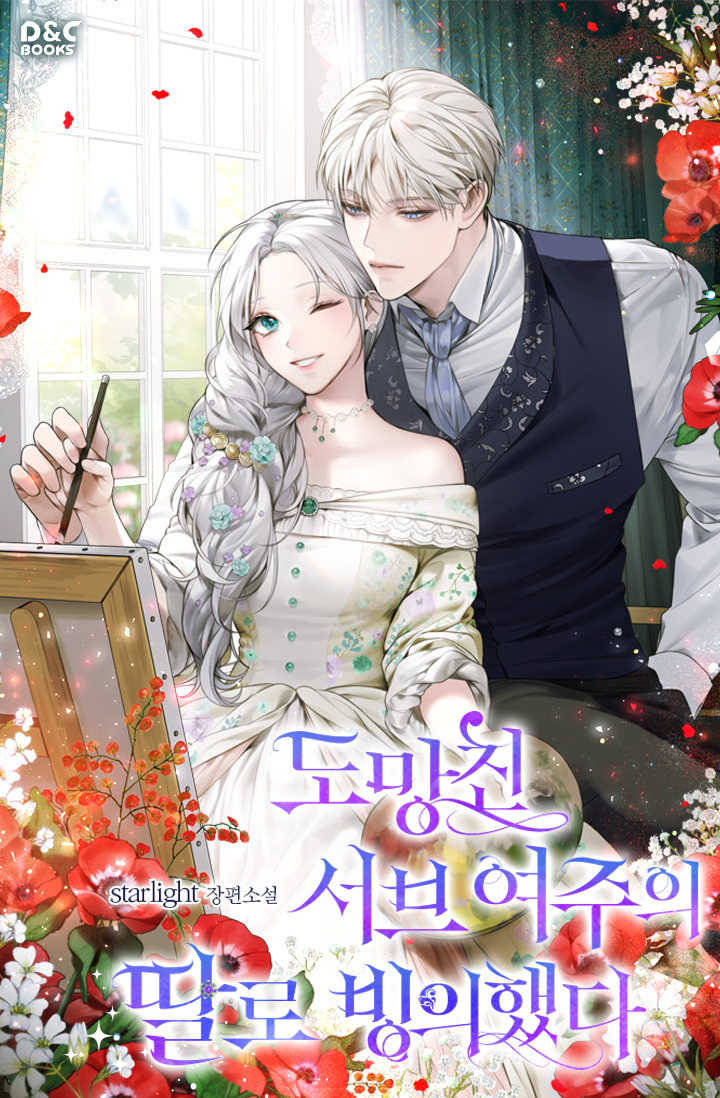Chapter 1: On a Cloudy June Evening
Chapter One: On a Cloudy June Evening
On the first day of June, as was customary on market day, Brittany used what little money she had saved to buy a notebook and some pencils.
She knew it was pointless—yet she never stopped.
Each time she left the art supplies store, she would cradle her purchases as if she held the entire world in her arms. Those simple tools were enough to grant her joy that lasted the whole day.
Or perhaps… she was merely trying to convince herself she was happy.
Only when she drew could she escape the relentless flood of thoughts that tormented her.
Her passion for drawing might have been nothing more than an obsession—a desperate urge to flee a life that resembled hell.
“Where have you been wandering until this hour?!”
How she wished she could flee the reality that awaited her every time she returned home.
“I went to the market… to buy some fruit…” she whispered, avoiding the gaze of her father, Count Raven.
She had become so absorbed in sketching in her new notebook that time had melted away. She only returned home as the sun began to sink beyond the horizon. As expected, her father’s eyes, ablaze with fury, met her at the door.
“Because of you, I’ve gone all day without food! Weren’t you supposed to be back in time to prepare dinner?!”
“I’ll make it right away, Father.”
Before his wrath could escalate, she rushed toward the kitchen, hiding the fruit basket in a corner—trying to conceal the drawing tools she had tucked beneath it.
But she knew—he missed nothing.
He knew perfectly well she bought art supplies every time the market was held. He knew she hid them in baskets, in bags, even beneath her apron.
So when he violently overturned the basket, exposing what lay at the bottom, it came as no surprise.
“You wretched girl! Wasting your time on that useless drawing again while your father is left to starve?!”
He held up the sketchbook that had been peeking from among the spilled fruit. His gaze, cold and merciless, pierced her trembling face.
She bowed her head, silently praying to endure as few blows as possible—feigning submission.
But he soon hurled the notebook to the ground, crushed it beneath his boot, then kicked it aside in a fit of rage.
“Where did you get the money to buy these things?!”
She didn’t answer. She picked up the trampled notebook and hid it behind her back, knowing full well that what was revealed could not be hidden again.
Still, she couldn’t bear to see it further defiled.
That didn’t sit well with him. He seized her by the hair and yanked her back forcefully.
“Ah!”
“You must’ve sold your body to that scoundrel Theo—the one you were purring around like a cat! You filthy little whore…”
Before she could even respond, his fist came crashing down on her cheek, drenched in the stench of alcohol she’d grown sick of.
She winced, but the moment offered no pause—he pulled her hair back and continued:
“You inherited nothing from your mother but that disgraceful habit. All you know is how to spread your legs.
Drawing?! You think you’re an artist? You bring shame to the name of House Raven!”
“I didn’t! I swear! Please, let me go!”
“Before I ruin your face, I should break your hands… But who will serve in the house if I do? No… your face first, yes?”
“Ah..! I’m sorry… I’m so sorry. Please forgive me!”
She wasn’t guilty of anything, but she still apologized, trembling with fear.
She had sworn to herself a thousand times that she had never sold her body.
She worked in the village, toiling at all kinds of exhausting tasks, earning every coin with the sweat of her brow—despite being the daughter of a count.
But her father never listened. Never believed.
So she had no choice but to kneel and beg for mercy.
She repeated, “I’m sorry. Please forgive me,” again and again—only to avoid being beaten.
Even though she had done nothing wrong, she remained on her knees, forehead touching the ground, pleading in humiliation.
But, as always, it was to no avail.
It didn’t matter whether she drew or sold her body.
The beatings never needed a reason.
Yet this time… she was lucky.
Before his violence could fully erupt, a knock sounded at the door.
He settled for two slaps.
“Damn it! That bastard Windsor must be here! Yes, just a moment! I’ll be right there!
What are you waiting for? Go and prepare dinner!”
Count Raven left the room begrudgingly to greet the guest.
Brittany gathered the broken tools and scattered fruit, then headed to the dining room.
“Ah, Lord Windsor, what an honor to receive your visit.
But what brings you here so suddenly?”
She entered the dining room just as her father opened the door to welcome the guest.
He knew the reason for the visit—yet he feigned surprise, trying to mask his irritation.
Brittany stood quietly against the wall, listening to the exchange behind the door.
The visitor’s voice was familiar—she had heard it many times in recent months.
“I was wondering whether you were still alive.”
His voice, perhaps, was alluring—and so curiosity tugged at her to see his face.
How many times had she peered out the window after he left, hoping to catch a glimpse of his features? Yet she had never seen him.
“Thanks to you, everything is fine.”
Her father’s angry tone had vanished—replaced by pathetic flattery.
“I’m glad to hear you’re doing well—thanks to my money.
I was beginning to think you’d forgotten me.”
“Forget you? Never!”
“Really? You’ve passed the repayment date—and I haven’t heard a word.
Was my trip here a waste?”
“No, no… I’ll have the money ready… tomorrow. It’ll be ready tomorrow.
But since you’ve come all this way, why not have a drink before you go?”
“I don’t need a drink.
But about the money you owe…”
The door shut on that final line. They had likely moved into the drawing room.
Brittany waited until she was sure the door was fully closed. Then she shut the dining room door behind her, buried her curiosity as she always did, and began preparing her father’s dinner as if nothing had happened.
For years, Brittany had taken over all the household work.
They no longer had servants—Count Raven had gambled away the family fortune.
His title was now nothing more than an empty shell.
Perhaps that was the only reason he hadn’t thrown her out.
He still needed her—a servant without wages.
As she washed some vegetables, her father’s promise to gather the money by tomorrow echoed in her mind, and she smiled bitterly.
How? When they didn’t even have enough to eat?
Surely, he would borrow again.
The debt would grow.
And with this downward spiral, her worst fear might come true.
He had hinted more than once that he might sell her to some wealthy, elderly man if things got desperate.
‘If that happens, I’ll run. I’ll leave this place forever.’
But had this place ever truly been a home?
She asked herself with bitter irony.
This house had never been a refuge.
All it had given her were hateful looks, scorn, and beatings.
It wasn’t a home—it was a prison.
Yet for three years after coming of age, she had stayed.
She hadn’t even dared consider running away.
She always believed what awaited outside was worse than what she endured inside.
Brittany let out a soft sigh, a quiet reflection of her state. Then she busied her hands again. After hastily preparing her father’s meal in about half an hour, she grabbed a few mashed fruits she had bought from the market to stave off her hunger in place of a proper meal. As she did, she pushed the empty basket aside and ascended the stairs to her room using the back door, the one that didn’t face the drawing room.
As soon as she entered, a faint moonlight crept through the linen curtains hanging from the window frame. Though it was the height of summer, the sun had vanished behind the clouds, and darkness had fallen swiftly. She lit a candle and slumped onto her desk, feeling a coolness on her swollen cheeks—as if it could soothe the fire of pain that still burned within them.
Buying art supplies, getting caught, being beaten—it was a cycle that repeated endlessly in her life. It wasn’t just the art supplies that sparked her father’s wrath. Anything that displeased him was reason enough for his cruel hands to descend upon her. She no longer remembered when this treatment had begun—it had been this way since childhood, until she believed it to be the norm.
But getting used to something didn’t mean it stopped hurting. Just as growing used to wounds didn’t mean she no longer felt sorrow. That’s why she couldn’t stop the tears that streamed down her face.
In the midst of such a harsh life, drawing was a ray of light that pierced through the darkness. When she drew, it felt as if she poured out the silence of her heart onto the page—and for a moment, her soul could breathe more freely. In those moments, she even forgot that her name was “Brittany de Raven.”
‘I must finish what I started earlier today…’
And as the burn in her cheeks began to fade, she felt some strength return. She lifted her face from the desk, wiped her tears hastily with the back of her hand, and pulled the new pencil from her apron pocket. It was broken, but still usable. Compared to the last time—when she’d had to wrap splinters of old pencils in cloth just to draw—this pencil was in far better shape.
She sharpened it, took a deep breath, and steadied herself. Then she searched the folds of her apron for her sketchbook—but it was gone.
She must have dropped it during the beating.





